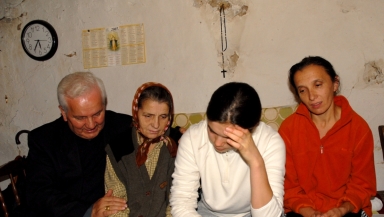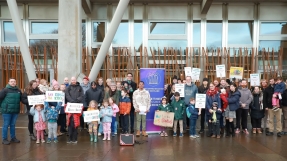
A leading Bosnian bishop has hit out against the government for preventing Catholic refugees from coming home.
"Politicians from the West must put pressure on Bosnian politicians so that Catholic war refugees can also return to Bosnia at long last," said Bishop Franjo Komarica of Banja Luka Diocese, Bosnia-Herzegovina.
Talking to the Catholic charity Aid to the Church in Need, Bishop Komarica, chair of the Bishop's Conference of Bosnia-Herzegovina, called on politicians to make sure refugees' basic rights are respected.
According to the bishop, Catholics, who are ethnically Croats, have not received the same rights as Bosniaksand Serbsin the country.
Bishop Komarica said: "Croatian Catholics must finally be put on an equal footing with the other two ethnic groups.
"They must be allowed to return from abroad and possibilities must be created for them to build up a life in their hometowns."
The bishop said that more than 4,000 Catholic families wanted to return to Bosnia-Herzegovina, but currently had "no guarantee for a sustainable return, no houses, no work, no electricity, no roads, no medical provision and no schools."
He added: "From the funds provided by the international community to enable former refugees to return, Catholic Croats have not received a cent for years."
The senior prelate also said that for those who had returned, having a Croatian name could be an obstacle to getting work.
Bishop Komarica said: "For many of the disenfranchised Croatian Catholics, especially in the entity of Republika Srpska, hardly any of the local politicians take up their cause."
Republika Srpska is one of the two main political entities that make up the nation state of Bosnia-Herzegovina, the other is the Federation of Bosnia and Herzegovina.
Despite the problems, according to the bishop there are some grounds for optimism.
"But in the past few days some promises have been made which arouse hope for better times for at least some of these disadvantaged people," he said.
The Catholic Church has been trying to promote reconciliation between different groups in the country through social and educational projects, such as the Church-run schools, which are open to children from all ethnic and religious groups.
These schools, which were set up with help from Aid to the Church in Need, have received more applications than there are places, according to the bishop.
According to Church figures, of the approximately 835,000 Catholics who had been living in Bosnia-Herzegovina prior to the war fought between 1992 and 1995, only about 440,000 are living in the country today.













